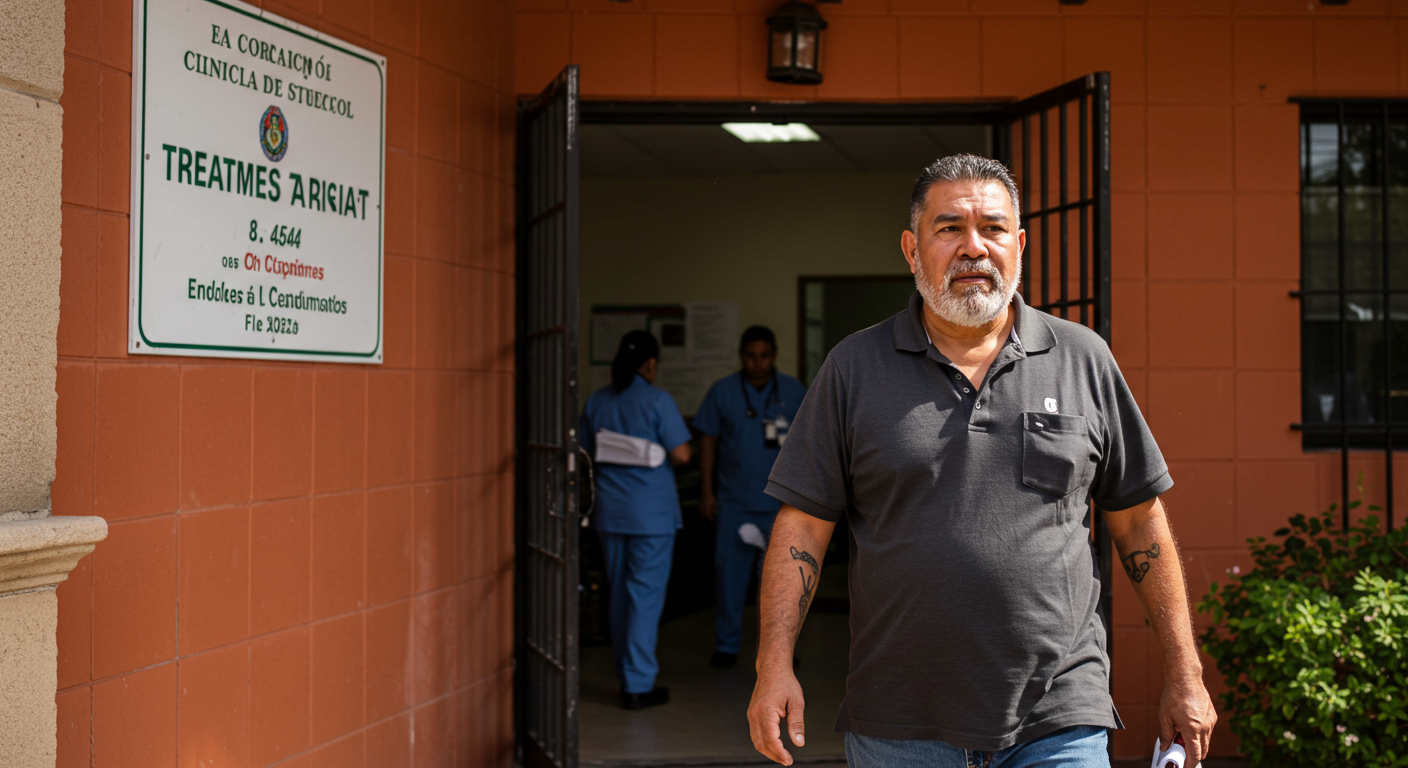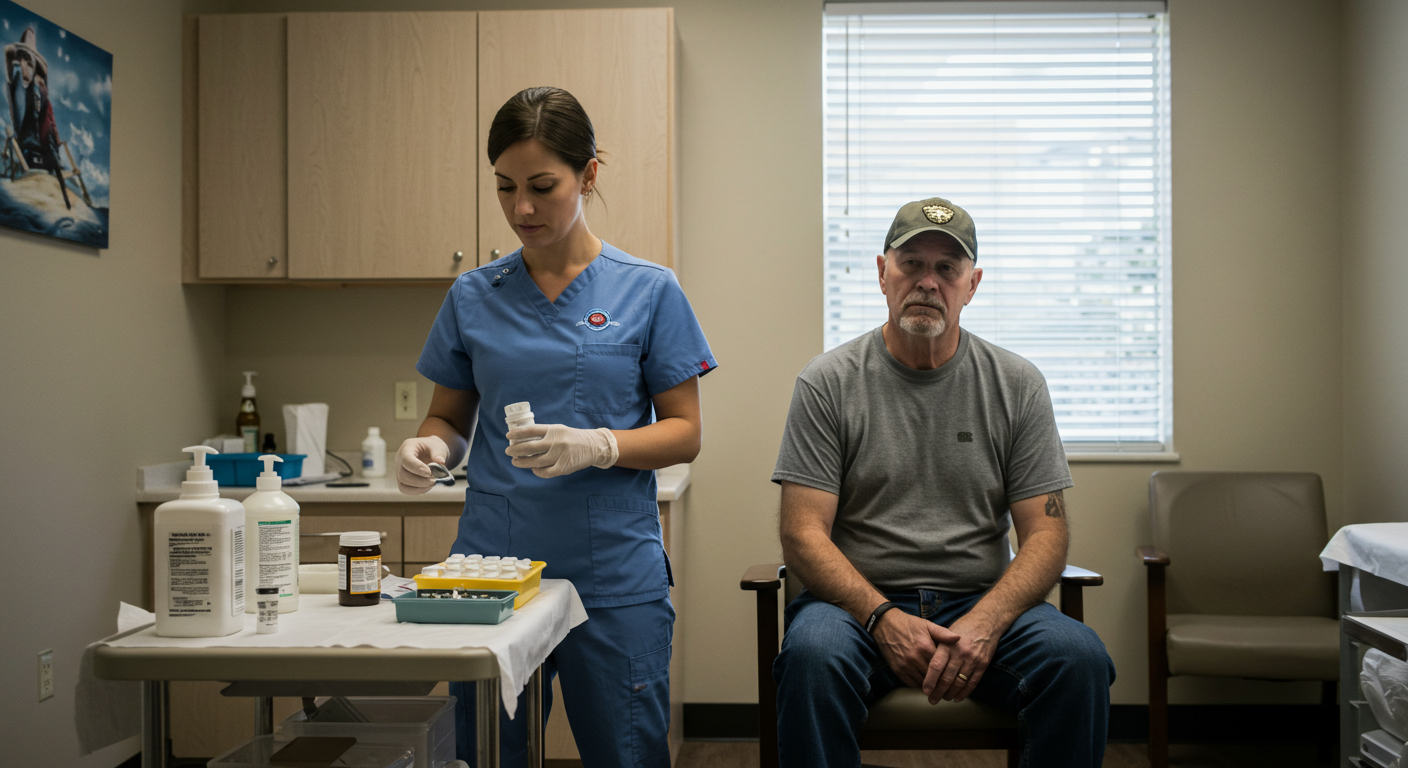Ibogaine Therapy for Traumatic Brain Injury: Breakthrough Research for Veterans
The weapons of modern warfare leave scars that medical imaging struggles to detect. For veterans returning from Iraq and Afghanistan, traumatic brain injury has become a signature wound—affecting hundreds of thousands who served. Unlike visible injuries, TBIs from blast explosions create cascading neurological damage that traditional medicine can't adequately address.
These invisible wounds rarely heal with time. Instead, they manifest as debilitating PTSD, treatment-resistant depression, and cognitive decline that strips away the mental acuity these veterans once relied upon. One Navy veteran described his deterioration bluntly: he forgot his wife's name. Another spoke of living in a perpetual blizzard, unable to see through the mental fog consuming his life.
When Standard Treatment Falls Short
The medical establishment offers few real solutions. Standard TBI protocols focus on managing symptoms rather than repairing damaged neural tissue. Psychiatric medications may dampen anxiety without addressing its neurological roots.
Special operations veterans face particularly severe challenges. Their exposure to repeated blast events during combat operations creates cumulative brain damage that compounds over time. For veterans whose brains have been fundamentally altered by repeated trauma, incremental improvements feel like abandonment.
Common TBI symptoms that resist conventional treatment:
Crushing anxiety and panic attacks
Treatment-resistant depression
Severe cognitive impairment affecting memory and concentration
Emotional dysregulation and relationship difficulties
The Ibogaine Solution
Understanding What Ibogaine Therapy Actually Does
Ibogaine therapy involves administering a psychoactive alkaloid extracted from African Tabernanthe iboga shrub root bark. Indigenous communities in Gabon have used ibogaine in spiritual ceremonies for centuries, but Western medicine only recently began investigating its therapeutic potential.
Unlike conventional psychedelics, ibogaine operates through multiple neurological mechanisms simultaneously. It interacts with NMDA receptors involved in learning and memory, modulates opioid receptors linked to pain and reward, and influences serotonin systems regulating mood. This multi-target approach may explain why ibogaine therapy for drug addiction has shown dramatic results, with some users reporting complete cessation of opioid cravings after a single treatment session.
The U.S. government classified ibogaine as Schedule I in 1970, effectively halting domestic research for decades. This regulatory barrier has slowed scientific progress while thousands of veterans continue suffering from conditions that ibogaine might alleviate.
Stanford's Research Changes Everything
In January 2024, Stanford Medicine researchers published results that sent shockwaves through military and medical communities. Their study tracked 30 special operations veterans with TBI who traveled to a Mexican clinic for ibogaine treatment. These weren't ordinary patients—they were elite warriors whose cognitive abilities had been devastated by repeated blast exposures.
The improvements defied medical expectations. Before treatment, participants averaged a disability rating of 30.2 on the WHO scale, indicating moderate functional impairment. One month after receiving ibogaine, that rating dropped to 5.1—essentially no disability. PTSD symptoms decreased by 88%, depression by 87%, and anxiety by 81%.
Dr. Nolan Williams, the study's lead researcher at Stanford, stated the implications clearly: "No other drug has ever been able to alleviate the functional and neuropsychiatric symptoms of traumatic brain injury." His team discovered that ibogaine wasn't merely masking symptoms but appeared to facilitate actual neural repair.
The safety profile proved equally impressive. Despite ibogaine's reputation for causing cardiac complications, the Stanford protocol combined it with magnesium supplementation to protect heart function. Not a single participant experienced serious adverse effects. This stands in stark contrast to many psychiatric medications that carry risks of addiction, weight gain, and emotional numbness.
How the Brain Actually Changes
What is ibogaine therapy doing at the cellular level? A follow-up study published in July 2025 in Nature Mental Health examined the neurological basis for these dramatic improvements. Using electroencephalography and MRI scans, researchers documented specific brain changes that correlated with symptom reduction.
Veterans who showed improved executive function exhibited increased theta rhythms—brain wave patterns associated with learning and cognitive flexibility. Those with reduced PTSD symptoms demonstrated decreased complexity in cortical activity, potentially indicating a normalized stress response.
The research revealed multiple protective mechanisms:
Upregulation of brain-derived neurotrophic factor (BDNF) promoting neuronal survival
Reduction of pro-inflammatory cytokines contributing to ongoing damage
Increased glial cell-derived neurotrophic factor (GDNF) supporting plasticity
Possible remyelination of protective nerve fiber sheaths
Barriers to Access
The Regulatory Stranglehold
Federal law continues choking off domestic research despite mounting evidence. The Schedule I classification declares ibogaine has no accepted medical use—a characterization that research increasingly contradicts. This legal status makes conducting studies extraordinarily difficult, requiring special DEA licenses that few institutions can obtain.
The absurdity becomes apparent when examining who seeks treatment. These aren't recreational drug users chasing psychedelic experiences. They're desperate veterans whose brains have been broken by service to their country. Many have attempted suicide before traveling to Mexico for ibogaine assisted therapy, viewing it as their last hope.
Texas recently invested $50 million in clinical trials examining ibogaine for TBI—one of the largest government investments in psychedelic therapy. The political momentum seems to be building, driven largely by veterans' advocacy groups and families who've witnessed dramatic improvements in loved ones who received treatment abroad.
Meanwhile, thousands of Americans travel to international clinics each year, spending $5,000-$15,000 for treatment that U.S. law prohibits. This creates a problematic two-tier system where those with financial resources can access potentially life-saving therapy while economically disadvantaged patients remain trapped in ineffective treatment paradigms.
Safety Done Right
The cardiac risks deserve serious consideration. Ibogaine blocks hERG potassium channels, prolonging the QT interval—a change that can trigger fatal arrhythmias. Several deaths have occurred at underground treatment centers operating without proper medical oversight.
Proper screening and monitoring dramatically reduce these risks. The Stanford protocol excluded patients with pre-existing cardiac abnormalities and provided continuous ECG monitoring throughout treatment. With these precautions, the study recorded zero serious adverse events across 30 high-risk patients.
Professional medical oversight also addresses psychological safety. Ibogaine produces intense introspective experiences that can surface traumatic memories and challenging emotional content. Patients may need guidance processing what emerges during treatment. Responsible clinics provide this support; underground operations frequently don't.
The Path Forward
The scientific evidence continues accumulating. Multiple research teams are now investigating ibogaine's mechanisms and therapeutic applications. Brain imaging studies are documenting neural changes with increasing precision. Each new study strengthens the case for medical legitimacy while highlighting the dysfunction of current regulatory approaches.
Veterans themselves are becoming powerful advocates for policy change. Those who've experienced dramatic improvements after ibogaine therapy are sharing their stories with lawmakers, the media, and other veterans still suffering. Organizations like VETS, Inc. are facilitating treatment access while pushing for legal reforms that would allow domestic availability.
Real progress will require regulatory reform, expanded research funding, and a fundamental shift in how American medicine approaches neurological repair. The brain's capacity for healing exceeds what most physicians were taught in medical school. Whether American veterans can access this treatment legally in their own country—or must continue traveling to foreign clinics for healing their government won't provide—remains an open question that shame alone should answer.


